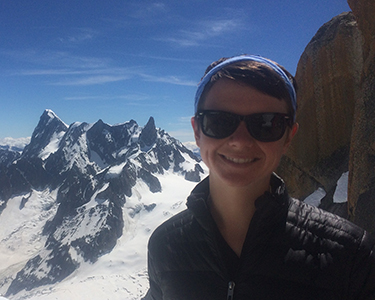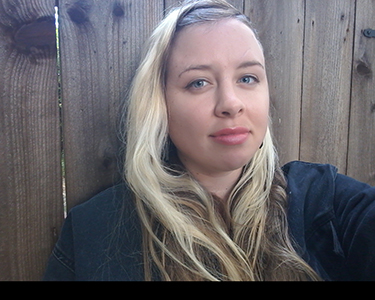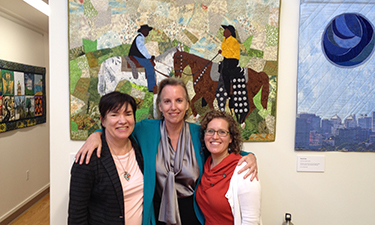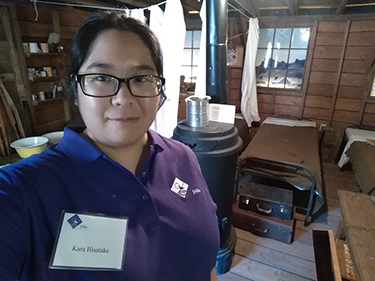Campus News
New program helps humanities grad students consider work in the public sphere
From a Holocaust study center in Norway and a small environmental center in northern Alaska, to the Japanese American Museum in San Jose and the Santa Cruz County jail, humanities Ph.D. students expanded their horizons this year thanks to a new program started by the UC Santa Cruz Institute for Humanities Research (IHR).






The new IHR Public Fellows program provides an opportunity for humanities doctoral students to participate in research, programming, communications, and fundraising at a wide variety of non-profit organizations, cultural institutions, and companies.
The aim of the fellowships is to enable these students to apply and expand their skills in a non-academic setting while engaged in graduate study.
“Humanities Ph.D. programs have been set up to prepare students primarily for tenure-track positions at colleges and universities,” noted IHR Managing Director Irena Polić. “Increasingly, our students are pursuing careers in different professions, inside and outside academia, and we wanted to create a program that would allow them to work in different environments.”
“Most of our public fellows credit this program with allowing them to imagine themselves doing humanities in the public sphere, re-imagining what it means to be a humanities scholar in the world,” Polić added.
Vivian Underhill worked for the Northern Alaska Environmental Center (NAEC), a small, grassroots environmental nonprofit in Fairbanks, Alaska, that focuses on economic and climate justice in central and northern Alaska.
“My role focused on the NAEC’s campaign against oil and gas production in the National Petroleum Reserve-Alaska, acting as a liaison between the NAEC and its coalition partners,” said Underhill. “We conducted interviews with activists along the North Slope and federal Bureau of Land Management officials, and drafted policy and position statements, advocacy and educational material, plus a successful grant application.”
Katie Trostel spent her summer in Oslo, Norway, at a museum and research institution called The Center for the Study of the Holocaust and Religious Minorities.
“Under the supervision of Anton Weiss-Wendt, head of research, I gained experience in academic publishing–assisting in compiling a two-volume collection of documents scheduled for publication in 2018 titled Documents on the Genocide Convention from the American, British, and Russian Archives,” said Trostel.
“In addition to copy-editing translations of Russian documents, I transcribed handwritten correspondence from the Cold War period written by British colonial officials,” Trostel added. “I was also credited with copy-editing text for a temporary exhibition on the history of the Gulag, The Gulag: What Grandfather Didn’t Tell, at the Norwegian Holocaust Center in Oslo.”
Trostel noted that the building where she worked was itself a site of memory, adding that Vidkun Quisling, head of the Norwegian collaborationist government, lived in the space during the Nazi occupation of Oslo. It was later transformed into a place dedicated to educating the public about collective memory and genocide studies.
At the Santa Cruz County Jail, David Donley, a teaching assistant in the Philosophy Department, worked as an instructor for an anti-recidivism program called CODE 4.
“As part of a comprehensive curriculum to develop healthy habits of mind, I taught a critical thinking course with a special focus on ethics,” said Donley. “The primary goal was to promote open-minded, logical argumentation and empathetic, respectful dialogue about contemporary ethical dilemmas.”
Donley noted that the topics discussed on a weekly basis ranged from criminal justice issues to the legalization of physician-assisted suicide.
Claire Ubranski spent her summer working at The Arizona State Museum (ASM), one of the nation’s largest state-operated archaeological repositories for excavated objects, artifacts, and human remains. The repository handles Native American Graves and Repatriation Act claims and protocol.
“Many archeological digs conducted in Arizona entailed the excavation of Indigenous burial sites,” said Urbanski. “The ASM spends a great deal of time going through past dig project materials. I spent most of my time cataloguing and screening archeological and archival materials for funerary objects and human remains so that they could be repatriated to their descendants or affiliated communities.”
Sarah Papazoglakis worked in the office of California Humanities, an independent non-profit partner of the National Endowment for the Humanities, that was founded in 1975 as a granting organization.
“I researched the organization’s internal and external 40-year history, conducted interviews with more than 15 project directors who worked with California Humanities from 1975-2015, and produced 15 brief feature stories that tell the history of California Humanities through the programs they’ve produced and/or sponsored,” noted Papazoglakis.
Kara Hisatake spent time at the Japanese American Museum of San Jose on grant writing and docent work this past summer. “As a docent, I was able to share history and culture in an accessible way to the public, a very different experience from a conference presentation or teaching specific reading materials,” Hisatake observed. “Both of these experiences have opened up new ways for what I do as a graduate student in academia to directly connect with larger communities.”
And closer to home, public fellows Taylor Wondergem and Ashley Herum spent their summers working in the local community.
Wondergem spent her time with Dr. Kristin Wilson of Cabrillo College, developing a program with a working title of “Gender Across the Curriculum.”
“Gender Across the Curriculum is envisioned as a model program which introduces gender as an analytic into science course work,” Wondergem noted. She additionally helped write a grant proposal which will be submitted to the National Endowment for the Humanities in Fall 2017.
While across town, Herum worked in downtown Santa Cruz as the assistant dramaturg for Santa Cruz Shakespeare’s A Midsummer Nights Dream.
“I had the privilege of working under the tutelage of Michael Warren, professor emeritus of literature at UCSC,” said Herum. “It was a joy to learn from him about the staging practices of Elizabethan/Jacobean England, while attending virtually all rehearsals of the play.”
“I was also given the opportunity to contribute material I had written on A Midsummer Night’s Dream to the study guide for ‘Weekend with Shakespeare,” an annual series of workshops and lectures sponsored jointly by Santa Cruz Shakespeare and UCSC’s Shakespeare Workshop,” she added.”